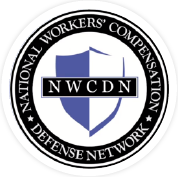OR-OSHA SEEKS TO UNDO “ROGUE SUPERVISOR” CASELAW
Issue: On November 7, 2012, OR-OSHA will convene what it hopes will be the one and only discussion with employers concerning its intent to promulgate a brand new “employer knowledge” rule in Oregon. As reflected below, it can be reasonably inferred that the purpose of that rule will be to make employers strictly liable for the bad acts of supervisors. Promulgation of this new rule constitutes an attempt to undo existing case law in this state that provides employers with reasonable protections against this “strict liability” approach and presents serious dangers to all Oregon employers.
Existing Law:
- To establish that a citation is valid, OR-OSHA must prove the cited employer either knew (actual knowledge), or reasonably could have known (constructive knowledge), of the violative condition.
- Since 1999, the Oregon appellate courts have made it clear that constructive knowledge does not exist where the evidence indicates that the violation resulted from the “bad acts” of a “rogue supervisor.” The courts have held that a “rogue supervisor” is one who acts contrary to an in-place and enforced safety program, where the facts show that such acts were not reasonably foreseeable by the employer. This holding was re-affirmed this year by the Court of Appeals in OR-OSHA v. CC&L Roofing.
OR-OSHA’s Apparent Agenda: Notwithstanding the caselaw going back to 1999, up until the Court of Appeals decided CC&L in February 2012, OR-OSHA’s position was that evidence that a supervisor was involved in the commission of a violation conclusively satisfied its burden of proving “employer knowledge.” In other words, OR-OSHA’s position was that the employer was “strictly liable” for the bad acts of all supervisors, including “rogue supervisors.” CC&L made it clear that OR-OSHA was wrong in this regard. OR-OSHA obviously didn’t like this answer. It would appear that the agency is now intending to achieve through an administrative rule what it failed to achieve in the courts.
Downside for Employers of Such a “New Rule”: While there are numerous downsides to an OR-OSHA administrative rule making employers strictly liable for the bad acts of supervisors, one in particular stands out. That is the effect of such a rule on third party, or “action over” lawsuits. Such suits often arise out of accidents that happen on multi-employer worksites. The allegations typically surround an injury/fatality to an employee of one employer on a worksite. The employee or the employee’s estate alleges that the negligence of a different employer contributed to the occurrence of the accident. Such lawsuits typically involve alleged damages in the six- to seven-figure range. If the employer targeted in such a suit has been cited by OR-OSHA for a violation tied to the cause of the accident, liability can be assumed as a matter of law. After such per se liability is attached to a case, the only issue is damages, meaning how much the employer will pay. No “not guilty” defense can be made. It therefore becomes critical for employers to not be wrongly cited for violations linked to injuries/fatalities. Yet OR-OSHA’s “strict liability for the bad acts of supervisors” rule would do exactly that; meaning employers would be cited for the acts of “rogue supervisors” notwithstanding appellate court decisions to the contrary. The result of such strict liability in OSHA enforcement cases would be strict liability in third party lawsuits, as well.
SUGGESTED ACTION:
- Show up at the meeting at the OR-OSHA Portland Field Office on November 7th at 9:00 a.m. and object to OR-OSHA’s intended course of action.
- Involve the lobbyists of your trade associations to also object.
- Request that OR-OSHA convene more than just the one planned meeting to allow for fair input from employers throughout the state.
by Cummins, Goodman, Denley & Vickers, P.C.

